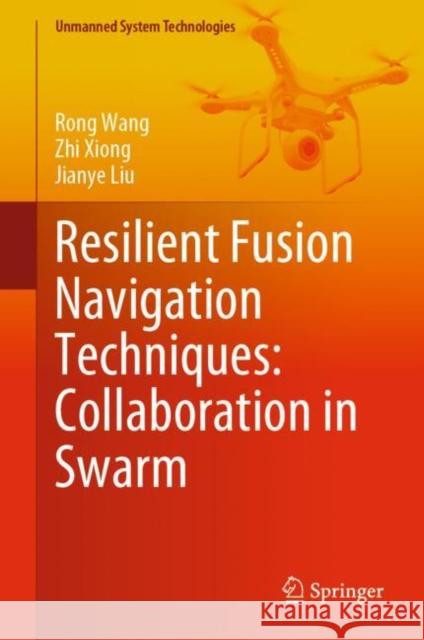Resilient Fusion Navigation Techniques: Collaboration in Swarm » książka
Resilient Fusion Navigation Techniques: Collaboration in Swarm
ISBN-13: 9789811983702 / Angielski / Twarda / 2022 / 213 str.
Resilient Fusion Navigation Techniques: Collaboration in Swarm
ISBN-13: 9789811983702 / Angielski / Twarda / 2022 / 213 str.
(netto: 766,76 VAT: 5%)
Najniższa cena z 30 dni: 655,41
ok. 16-18 dni roboczych.
Darmowa dostawa!
This book describes the resilient navigation techniques under the background of collaboration in swarm. The significance of this work is that it focuses on the navigation enhancement by collaboration in swarm rather than ground infrastructure, which exploit potentialities of swarm in GNSS restricted environment.Although unmanned swarm is receiving greater attention, both through theoretical research and through increasing mention in the industrial developments, the navigation promotion by effective and efficient collaboration remains largely unexplored. While my scholarly work has explored some of the modeling, error characteristic, fusion algorithm, fault detection, and isolation aspects of the “adaptive navigation system” (such as the navigation system of robots and ground vehicles, aircrafts, aerospace vehicles, and unmanned aerial vehicles), the present book proposes the specialized investigation on the navigation with the resilient character, which could maintain the performance by essential collaboration with members in swarm in GNSS degradation environment.This book focused on the resilient navigation techniques under the background of collaboration in swarm. The key techniques of collaborative resilient navigation are proposed, including the collaboration framework, collaborative observation modeling, geometry optimization, integrity augmentation, and fault detection. The experiments are also carried out to validate the effectiveness of the corresponding techniques.
This book describes the resilient navigation techniques under the background of collaboration in swarm. The significance of this work is that it focuses on the navigation enhancement by collaboration in swarm rather than ground infrastructure, which exploit potentialities of swarm in GNSS restricted environment. Although unmanned swarm is receiving greater attention, both through theoretical research and through increasing mention in the industrial developments, the navigation promotion by effective and efficient collaboration remains largely unexplored. While my scholarly work has explored some of the modeling, error characteristic, fusion algorithm, fault detection, and isolation aspects of the “adaptive navigation system” (such as the navigation system of robots and ground vehicles, aircrafts, aerospace vehicles, and unmanned aerial vehicles), the present book proposes the specialized investigation on the navigation with the resilient character, which could maintain the performance by essential collaboration with members in swarm in GNSS degradation environment. This book focused on the resilient navigation techniques under the background of collaboration in swarm. The key techniques of collaborative resilient navigation are proposed, including the collaboration framework, collaborative observation modeling, geometry optimization, integrity augmentation, and fault detection. The experiments are also carried out to validate the effectiveness of the corresponding techniques.











